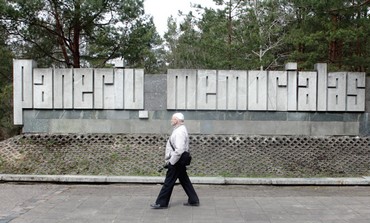Improving Lithuania’s understanding of the Holocaust
What is missing is any mention of the extensive and extremely important complicity of Lithuanians in Shoa crimes.
 The Holocaust memorial at Paneriai near Vilnius, Lithuania(photo credit: INTS KALNINS / REUTERS)
The Holocaust memorial at Paneriai near Vilnius, Lithuania(photo credit: INTS KALNINS / REUTERS)